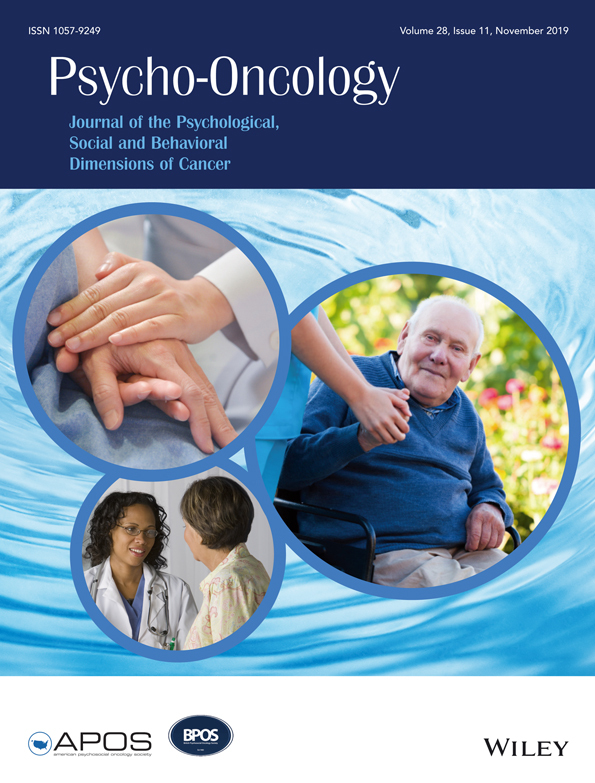A single-session acceptance and commitment therapy intervention among women undergoing surgery for breast cancer: A randomized pilot trial to reduce persistent postsurgical pain
Abstract
Objective
Oncologic breast surgeries carry a risk for persistent postsurgical pain. This study was a randomized pilot and feasibility study of a single-session Acceptance and Commitment Therapy (ACT) intervention compared with treatment as usual among women undergoing surgery for breast cancer or ductal carcinoma in situ.
Methods
Participants were recruited via letter of invitation and follow-up phone call from a single site in the United States from 2015 to 2017. Participants were at risk for persistent postsurgical pain, based on young age (<50), a preexisting chronic pain condition, or elevated anxiety, depression, or pain catastrophizing.
Results
The 54 participants were female with a mean age of 52.91 years (SD=11.80). At 3-month postsurgery, 11% of the sample reported moderate-severe pain (>3 on a 0-10 numeric rating scale) in the operative breast or with arm movement. Written qualitative responses indicated that the majority of participants who received the intervention understood the concepts presented and reported continued practice of exercises learned in the session. The between group effect sizes for moderate-severe pain and elevated anxiety at 3-month post-surgery were small (Phi=0.08 and 0.16, respectively). The between group effect sizes for depression, pain acceptance, and pain catastrophizing at 3-month postsurgery were minimal.
Conclusions
This study found small positive effects on postsurgical pain and anxiety for a single-session ACT intervention among women with breast cancer. This study supports the use of ACT with this population.




